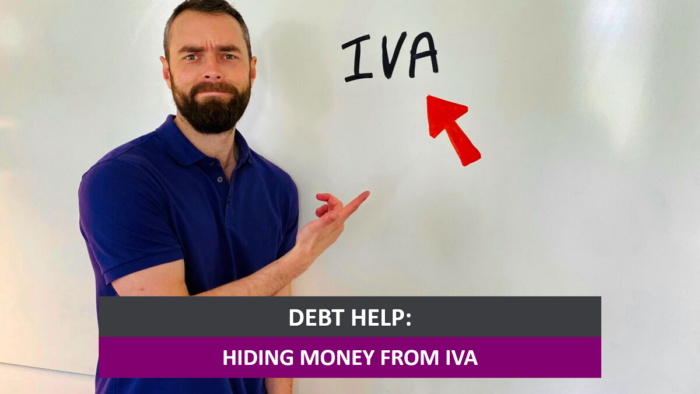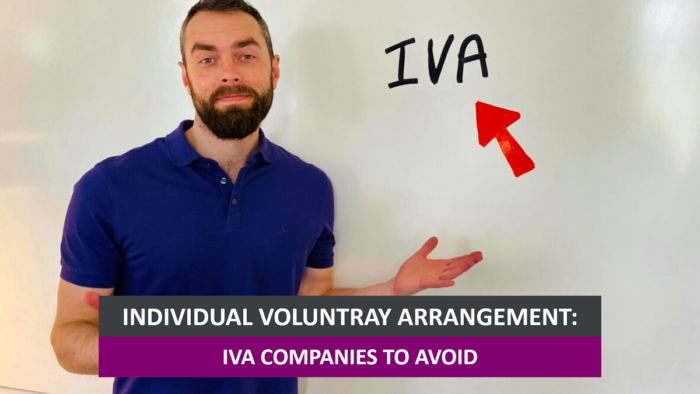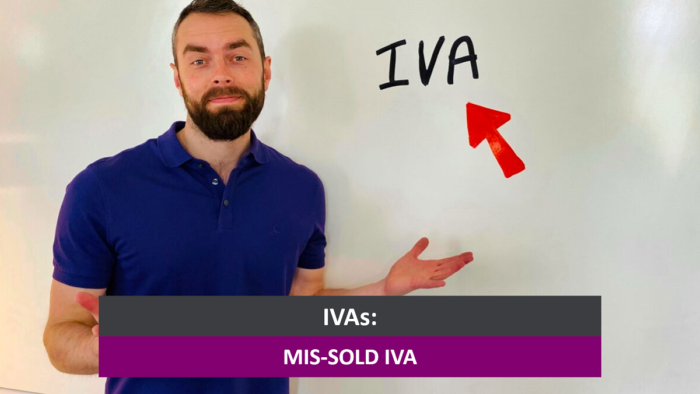Hiding Money from IVA – Should You Do it?
For free & impartial money advice you can visit MoneyHelper. We work with The Debt Advice Service who provide information about your options. This isn’t a full fact-find, some debt solutions may not be suitable in all circumstances, ongoing fees might apply & your credit rating may be affected.

For free & impartial money advice you can visit MoneyHelper. We work with The Debt Advice Service who provide information about your options. This isn’t a full fact-find, some debt solutions may not be suitable in all circumstances, ongoing fees might apply & your credit rating may be affected.
Are you asking yourself, ‘Should I hide money from an IVA?’ You’ve come to the right place. Over 170,000 people visit our website each month to find answers about debt solutions.
We know it can be tough trying to understand the IVA process; you might even be concerned about paying off your debt. From July to September 2023, the Gazette reported that there was a total of 13,965 Individual Voluntary Arrangements.1
But don’t worry. In this guide, we’ll share clear answers to your questions:
- Should you hide money from an IVA?
- What can happen if you hide money from an IVA?
- Is it possible to write off some debt?
- Are there other ways to deal with your debt?
Our team has firsthand experience with debt problems. We understand how hard it can be, and we’re here to support you.
Should You Hide Money From IVA?
Entering an Individual Voluntary Arrangement (IVA) usually means that you agree to pay any money in your bank account over your living costs (that you need to live your normal everyday life) to the insolvency practitioner at the end of every month.
These monthly payments usually continue for five years. The exact duration may vary according to your debt management plan. Any remaining debt in your name is written off at the end of this duration, and the agreement ends.
During the five years that the IVA continues, a licensed insolvency practitioner keeps a close eye on your finances to give you debt advice and plan how your creditors should be paid back.
It is not a good idea to hide money from your IVA as the probability of you getting caught is very high, and you will probably end up going completely bankrupt and losing the finances you were trying to hide in the first place.
Financial transparency in an IVA is crucial.
Should You Hide Assets With an IVA?
No, you should not hide assets if you have agreed to an IVA. That would be very unwise and goes against the IVA regulations and conditions you agreed to, as well as being illegal.
You have to provide payslips and bank statements as part of your IVA review. This way, they have a very close eye on your bank account as well as asking you for asset declaration in your IVA.
Constantly checking your account for your financial status doesn’t even go against their privacy policy; they can keep doing it repeatedly.
Hiding inheritance from your IVA practitioner is also not a good idea, as he/she usually has a close eye on your finances. They will find out whether or not you tell them about the money.
Remember, dealing with your creditors directly and providing a debt solution is their job.
If some extra cash comes your way and you decide to hide it, when you’re caught, you can possibly go bankrupt and lose that money anyway.
How a debt solution could help
Some debt solutions can:
- Stop nasty calls from creditors
- Freeze interest and charges
- Reduce your monthly payments
A few debt solutions can even result in writing off some of your debt.
Here’s an example:
Situation
| Monthly income | £2,504 |
| Monthly expenses | £2,345 |
| Total debt | £32,049 |
Monthly debt repayments
| Before | £587 |
| After | £158 |
£429 reduction in monthly payments
If you want to learn what debt solutions are available to you, click the button below to get started.
What Happens If You Hide Money From IVA?
The court governs an IVA. You are required by law to notify your practitioner of any income that comes your way. If you don’t do that, you could go to jail and risk losing your assets.
Moreover, if your agreement fails, some of the IVA consequences could include forced into bankruptcy and lose money.
It is a wise idea to stay in touch with your practitioner throughout the IVA duration and let them know if there are any changes to your income or outgoings, no matter how small they seem.
» TAKE ACTION NOW: Fill out the short debt form
Can I be Taken to Court For Hiding Money From My IVA?
Yes, an IVA is governed directly by the court, and it is fraud to hide money from them, as well as an IVA agreement breach. Any such attempt will not go ignored, and you will be taken to court over the dispute.
You may even need to hire a third party to deal with such a situation (if it arises), which means extra costs in legal fees.
In any circumstance, hiding your assets from the IVA means bad news. It is better to just pay the lump sum IVA debt with the extra cash instead of trying to hide it and risk going bankrupt.


